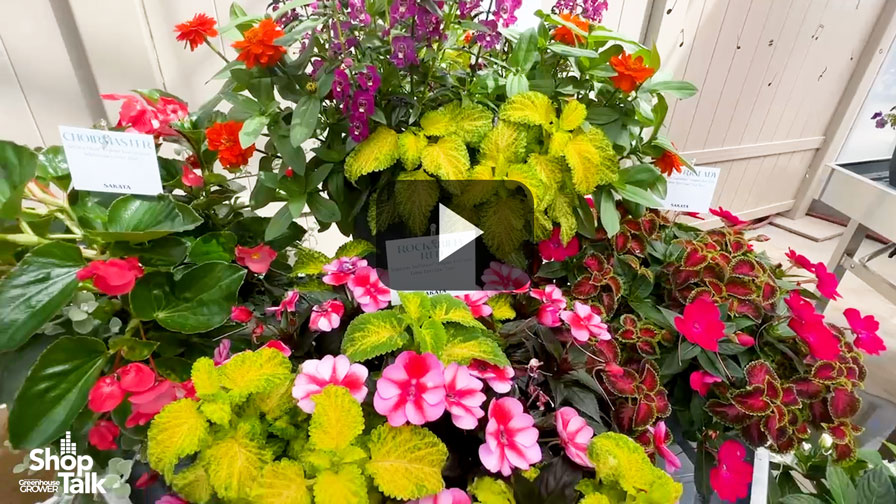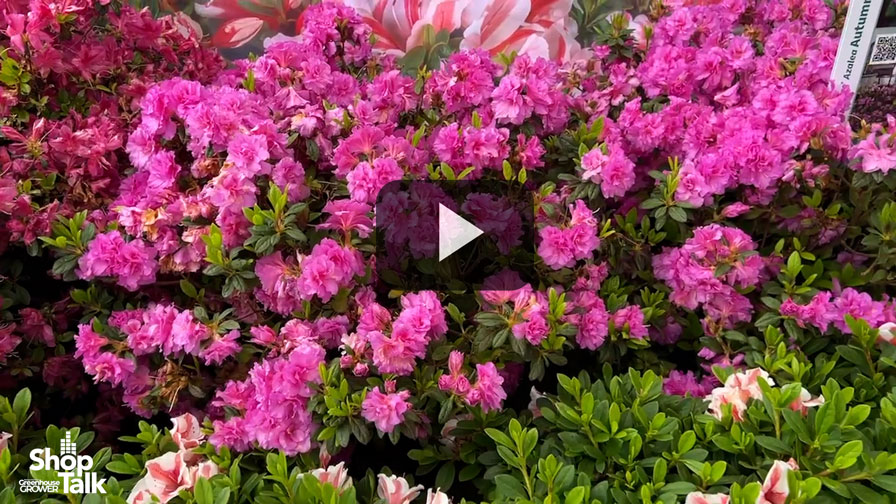How to Select the Right Equity Partner for Your Greenhouse Business
 It is difficult not to take note of the amount of investment capital flowing into private greenhouse vegetable and vertical farming operations these days. Why is this a trendy investment area, and what opportunities do investors see in these markets?
It is difficult not to take note of the amount of investment capital flowing into private greenhouse vegetable and vertical farming operations these days. Why is this a trendy investment area, and what opportunities do investors see in these markets?
Greenhouse Grower sat down to talk with Nick Houshower, Principal of Equilibrium’s Controlled Environment Foods team, to get answers to these questions and discuss what controlled-environment growers wanting to grow their businesses can do to find a good investment partner. Houshower is a greenhouse, controlled environment, and agribusiness private equity professional working to build a resilient and sustainable food system. He was the perfect source to discuss investment in controlled-environment markets, as he is responsible for business development and investor relations at Equilibrium.
Greenhouse Grower (GG): Please share your perspective from the investment side about the economics of the produce industry and what developments you are seeing in that market.
Nick Houshower (NH): Equilibrium is a sustainability-driven investor. We look for areas where sustainability has a long-term set of economic advantages. In the case of a controlled environment, you have the perfect encapsulation of what that means. In a controlled-environment greenhouse or a vertical farm, you have less cost, efficient water usage, a reduced amount of energy and nutrients used, and the operations take up less land than field production. Labor is also used more efficiently.
What we saw as we were looking at the controlled environment area is a set of production modalities that are well-positioned to deal with a couple of fundamental changes in the U.S. food system. On one hand, we have a shifting consumer sentiment. Consumers want different levels of quality, food safety, and traceability. They want items that only come out of greenhouses such as cocktail tomatoes, bell peppers, cucumbers, etc. On another level, we have changing climate considerations, which will eventually change how and where we use water and what crops we will grow over the long term. All of this is putting pressure on retailers and foodservice companies to think about the risk of managing their supply chains. They are starting to take a long-term view of what resiliency in their supply chains means.
We also have an industry hitting an inflection point with a rapid growth trajectory. It’s no longer a question of whether greenhouses will win out; they are already winning. For example, most of the tomatoes at the retail level are greenhouse-grown. We’re also seeing other crops brought into the greenhouse such as berries and soft fruits, and there is even some talk of melons. It all depends on the price point and volume and scalability. Our company saw that it’s very hard to be a family-owned grower or a grower-owned company and keep up with the pace and modernization demanded by the market. It’s sometimes hard for growers to be efficient and scale up their production. Our core strategy at Equilibrium is to partner with the growers to allow them to remain in control of their business and farming operations. At the same time, we give them access to the capital they need to grow with the market. We build and lease facilities to growers and provide them with working capital or equity investment where needed for growth.
GG: Does your company have any concerns on the investor side, particularly with vertical farms, about the profitability of some vegetable operations in the long term?
NH: I think the jury is still out long term about if and how vertical farms will play a role, particularly in North America. We initially looked but felt it was cost-prohibitive for the larger, broader, mass market. We see the energy use of vertical farms being several times that of greenhouse operations. That will change over time, but vertical farms are not there yet. Most vertical farms are targeting high-value crops such as spring lettuce mixes and herbs. I think some of them will have a profitable niche industry. The biggest question with them right now is if they can scale with the market. Things might also change with continued progress on LED lighting efficiencies and genetic innovation that allow for the next level of crops and seeds designed for the vertical farming space. For us, that doesn’t change the underlying thesis that greenhouses today are cost-competitive, and they will remain cost-competitive. However, we are not here to say that one system is better than the other because we look at each investment individually on a standalone basis.
GG: What do you look for in your partnerships with greenhouse operations? What do growers need to know about partnering with an investor?
NH: Growers’ horticultural track record is the most important thing. We’re focused on finding partners that have a demonstrated track record of operating their greenhouses efficiently. That efficiency often varies depending on the crop, age, or size of the greenhouse, etc. We take a relative perspective on that. What we want is for somebody who has an aspiration to be a best-in-class greenhouse operator. They’re focused on the most important drivers of economics in a greenhouse — quality and yield, particularly with vegetables. They’re efficient with their labor, and they empower their people and work with them to minimize costs.
The other thing we look for is receptivity by greenhouse companies and greenhouse growers to institutionalize their businesses. Oftentimes, when we get involved or have seen opportunities, we’re the first outside investor or outside partner many of them have worked with because they’ve had a family business for an extended period. They may not have all the business formality or business institutionalization that we would expect, and that’s okay. What we want is someone who understands that welcoming an institutional investor will require them to have more formal processes within the business to have formal governance and maybe a board of directors. They might need to hire a high-quality CFO. Making those kinds of investments will help them take their business to the next level. We want partners that understand getting to the next level in their industry or their business takes receptivity to change to professionalize their business and grow with the market.
GG: Do you see investors as staying interested in mainly the vegetable industry, or do you think they will eventually branch out to other areas of horticulture?
NH: Absolutely. I think you’ll see more interest in broader areas of horticulture. Right now, the opportunity in food and vegetables is very near and tangible. People see that there is a clear market need for more greenhouses just to satisfy demand in a growing market. Investors also understand that there are long-term, macro-economic changes happening in the way we think about our supply chains and their resiliency that are going to make investing in greenhouses for food and vegetables attractive for several decades. While understanding the dynamics around floriculture and potted bedding plants is a level of expertise we don’t have at Equilibrium, I think these markets are going to bear out similarly to the vegetable market. It’s harder to grow outdoors, and it is getting harder to grow reliably. There is going to be more demand for controlled-environment growing. I think in adjacent parts of the supply chain, you’ll see other things going into greenhouses and different types of products becoming available, and you’ll have specialized producers in each area. You might also have specialized investors in each category one day.
GG: In conclusion, please share your thoughts on the relationship between private equity and ag-tech. Where do you see things headed?
NH: Ag tech is very interesting to all different kinds of investors right now. As more people populate the planet, we will need to use fewer resources and less labor, and we’ll have a more volatile world. All these fundamental changes create opportunities for investors and companies that want to solve one or several of these challenges. One of the challenges for growers or companies in the controlled environment and ag-tech space will be making sure that their investor or private equity partner has a time horizon that matches theirs. Investors are short-term by nature of the way they are structured, so their timeline might be anywhere from three to five years or seven years to 15 years. When an investor’s exit strategy doesn’t match yours, it can create friction. It is better to have discussions with them ahead of time about your objectives, what your goals are, and when you want to sell your business.
You also want to make sure you work with an investor that is value additive to your business and not just someone that represents the money. They need to unlock doors of opportunity and help you professionalize your business to take it to the next level. An investor is usually a particular domain expert in one area. You want someone that understands your business and someone who is committed to your success, even when there are bumps along the road.
There are a lot of differences between private equity investors and institutional investors and venture capitalists that are targeting this space, and not all of them are experienced in the agricultural world. They will not all have a time horizon that matches the fact that agriculture is a multi-year, long-term business. You need a long-term partner. Going back to your earlier question, when we look for an investment partner, we want someone who has the ambition to double or triple their business over the next five to 10 years. We want the partnership to go both ways. We don’t want to have to look for new partners two to four years down the road. We’re not generally in the business of buying people out. We want to invest alongside people to grow their business.









